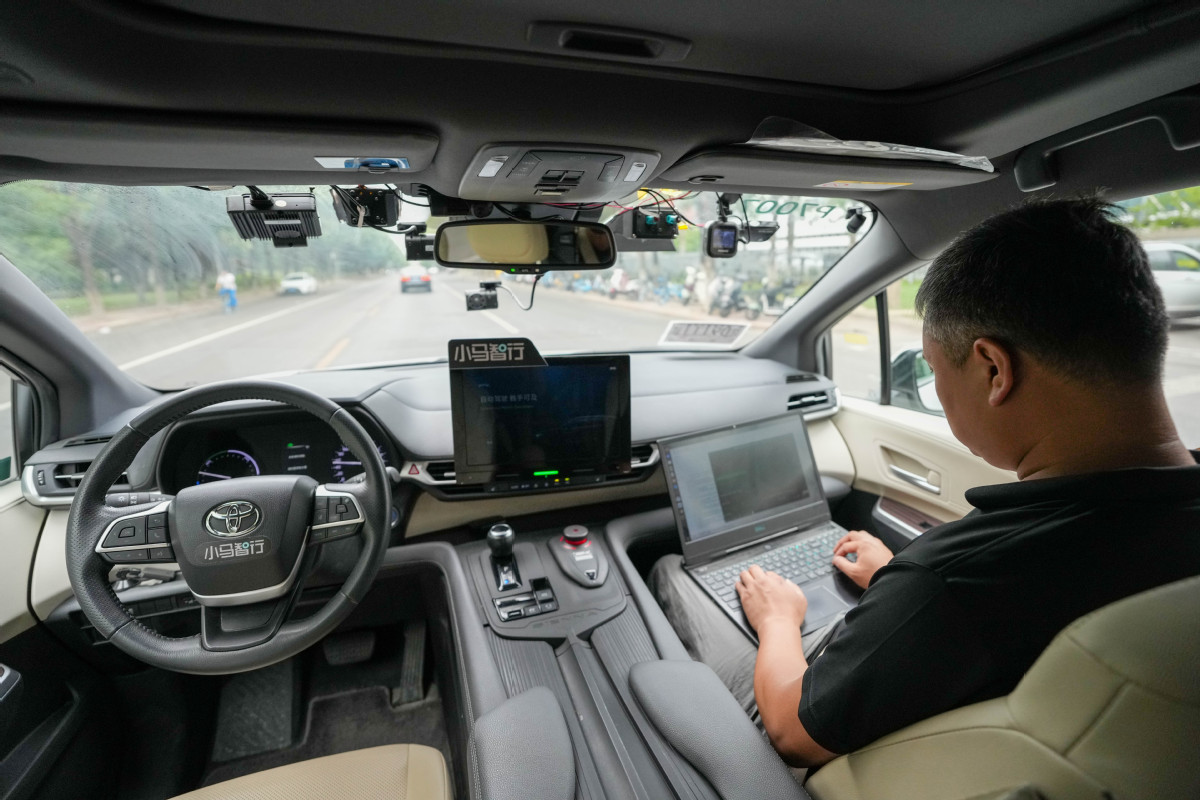Smart driving aids push brands into pole position

Smart driving functions have become a must for new energy vehicles in China, especially when such brands aspire to grow themselves into premium ones, said analysts.
More than 62 percent of electric vehicles, plug-in hybrids as well as range-extended vehicles sold in the first two months of this year feature advanced driving assistance systems, according to the China Passenger Car Association.
Smart driving functions are emerging as one of the major highlights of premium vehicles, said Joel Ying, an analyst specializing in auto and parts, technology and telecom at Nomura.
"What we see is new energy vehicles priced over 200,000 yuan ($27,708) are hard to sell in China if they do not boast smart driving functions," Ying said.
"You need to offer such functions in the first place, no matter whether the technology is sound or how it really works," he said.
Bai Ling, an IT specialist in Beijing, chose an Aito M7 when he replaced his six-year-old Citroen C5 last month.
Bai said he had wanted to trade it up for an Audi but he quickly changed his mind when he was persuaded by his wife to try the Aito vehicle that features Huawei's smart driving solutions.
"It is like they are from two completely different ages: when you have tried it, you just cannot resist the temptation to own it," he said.
The Aito brand's cumulative sales reached 400,000 units in late July, just 28 months since its first vehicle rolled off the assembly line, said Seres, which codeveloped the brand with Huawei.
In July, Seres sold 42,176 NEVs, up 508 percent from the same month last year. Its sales in July helped total deliveries in the first seven months of this year to exceed 243,000 units, marking a 370 percent surge year-on-year.
The fact that smart driving brings a boost to sales is not limited to Aito. Ying at Nomura said that of the orders for NEVs priced above 200,000 yuan, smart driving versions account for a sizable proportion.
"Car buyers would like to try something new," said Ying. "You can tell that smart driving is having a far-reaching effect on the automotive industry."
"The word 'premium vehicle' is now different from what it was 10 or 20 years ago. Looking forward, it will be defined by smart driving and other human-machine interactive functions," he said.
Xpeng, which is codeveloping vehicles with Volkswagen, unveiled a major upgrade to its smart driving system late July.
He Xiaopeng, chairman and CEO of Xpeng, said the upgrade has made its XNGP system significantly better than before, after over 7.56 million kilometers of real-car tests in over 2,500 cities.
The system will enable the car to navigate itself on the road more smoothly from around late 2025 to early 2026, and thus make it more enjoyable for car owners, he said.
Xpeng has been heavily investing in smart driving functions. Its budget earmarked for artificial intelligence this year totals 3.5 billion yuan, said the 10-year-old startup.

